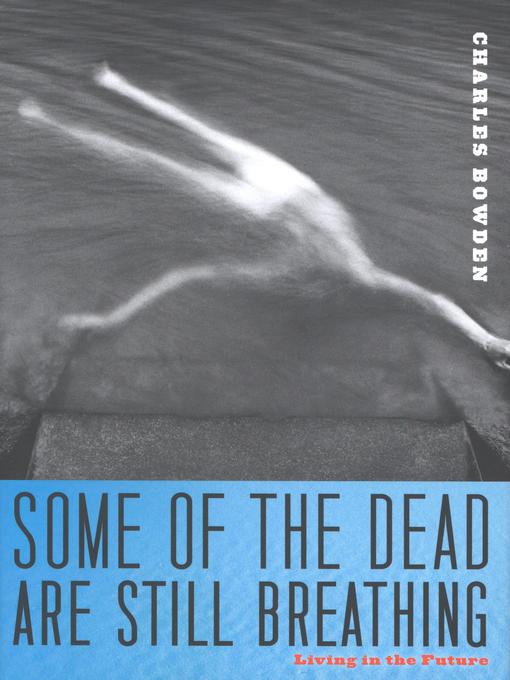
Some of the Dead Are Still Breathing
Living in the Future
کتاب های مرتبط
- اطلاعات
- نقد و بررسی
- دیدگاه کاربران
نقد و بررسی

March 15, 2009
A dark, foreboding meditation on life from the provocative author.
In a postscript, Bowden (A Shadow in the City: Confessions of an Undercover Drug Warrior, 2005, etc.) writes that this unclassifiable blend of memoir, reportage and philosophy, together with his Blood Orchid (1995) and Blues for Cannibals (2002), form an"accidental trilogy" seeking to answer the question,"how can a person live a moral life in a culture of death?" Written in a piercing blur of sharp sentences, the book conjures a landscape of death and loss—from the dead city of New Orleans, where"night comes down like the lid on a garbage can," to terrorist-bombed Bali—in which people attempt to explain the reality that is all around them. Bowden notes, however, that our ability to express ourselves through writing is often inaccurate, even artificial."But words are all I have," he writes,"my skills are limited and the words at best are a veil, maybe even a shroud, between us and this world we touch but cannot embrace, a ball of dirt we stand on but never can really know." The author embraces all manner of experience, including drink, lovemaking, violence and nature. He declares himself a man at the edge, forever engaged in foolhardy and dangerous activities, always accepting but never submitting."I have been walking out the door on peace and quiet most of my life," he writes. We see him trying to make sense of his childhood in Illinois, womanizing in Mexico, at sea on a 600-ton fishing vessel and firing his rifle carelessly at a coal train while driving across a desert in his pickup truck. Undoubtedly an acquired taste, Bowden's breakneck writing is bracing and irreverent. Yet a zenlike calm lies at the heart of his bleak vision, one that he calls"snake-time," where he can simply be like the rattlesnake. In the end, he writes, love is the only thing that matters.
Affirms Bowden's place in the cranky Edward Abbey-Hunter S. Thompson school of Western individualists.
(COPYRIGHT (2009) KIRKUS REVIEWS/NIELSEN BUSINESS MEDIA, INC. ALL RIGHTS RESERVED.)

Starred review from March 15, 2009
Bowden is a blood-and-guts journalist with a poets sensibility, a noirish naturalist, a ferociously inquisitive witness to lifes glory and horror torn between the desire to embrace the world and the need to hole up in a drapes-drawn motel room. Bowden covers the borderland drug culture in such high-voltage dispatches as Down by the River (2002), while also writing darkly rhapsodic works of memory and reflection. This ravishing chronicle follows Blood Orchid (1995) and Blues for Cannibals (2002) to complete an accidental trilogy of books that flow from a single question and a single hunger: how can a person live a moral life in a culture of deaththe deaths of people and animals, forests and oceans, clean air and water. Writing with molten urgency, confessional magnetism, and piercing detail, Bowden chronicles his unlikely friendships with a rattlesnake and a desert tortoise, enigmatic encounters with women, the psychic repercussions of his murder investigations, and his part in a terrifying Greenpeace mission. Red wine, Moby-Dick, human brutality, the suffering of other species, the obdurateness of paradox, the ambush of love, beauty beyond comprehension, the immensity of loss implicit in our planetary crimesBowden, singing in chains, says yes to all of life.(Reprinted with permission of Booklist, copyright 2009, American Library Association.)

























دیدگاه کاربران